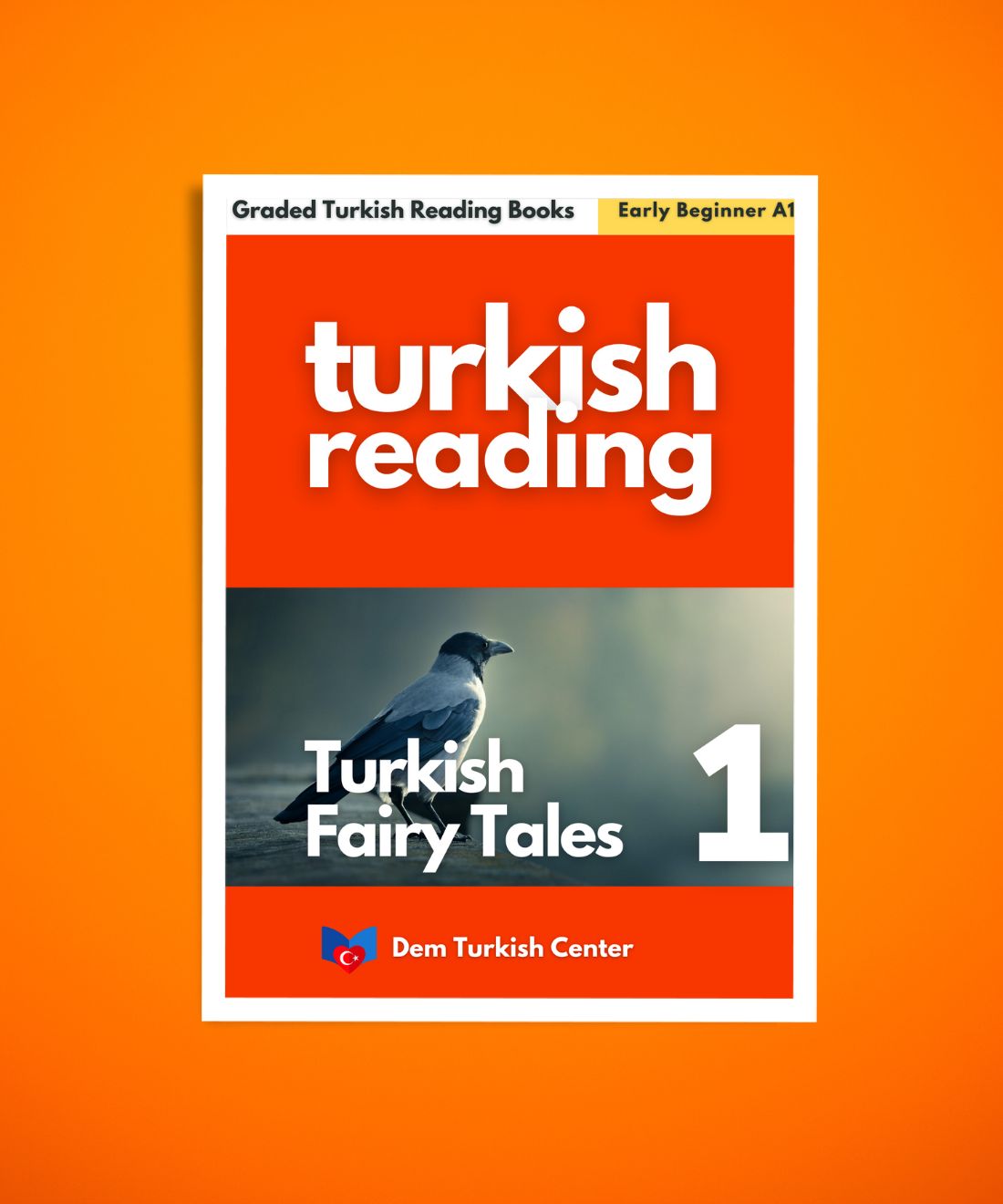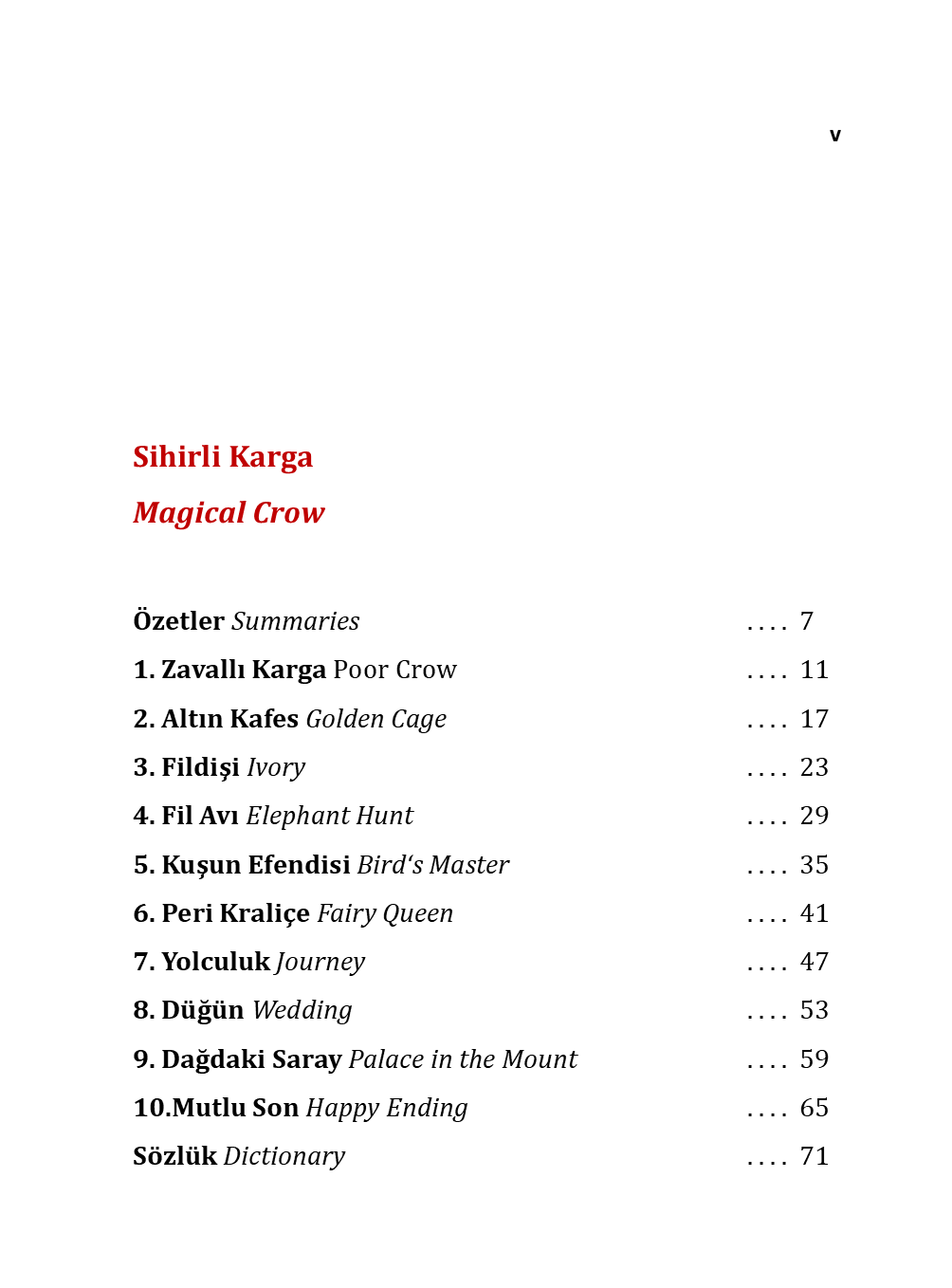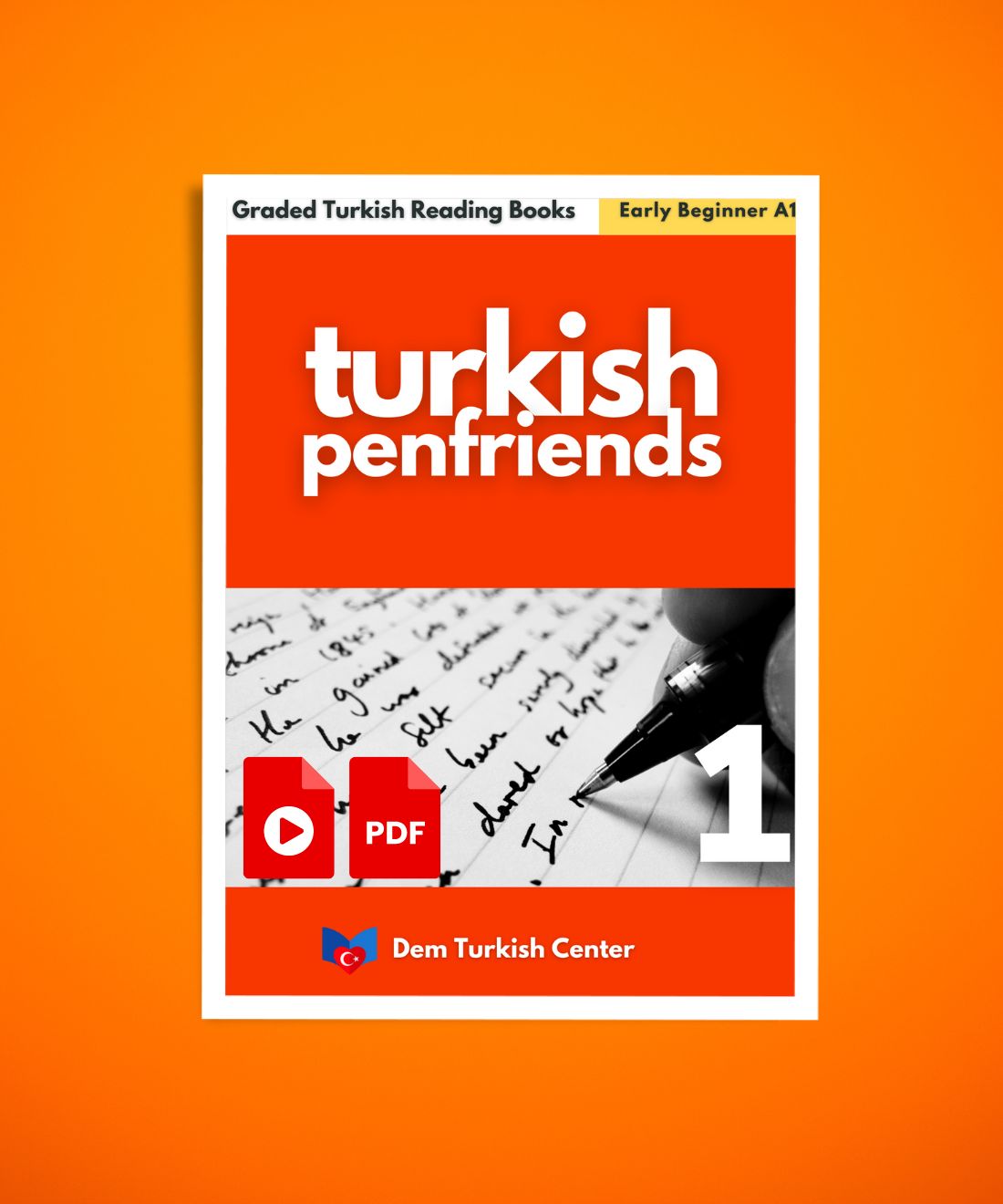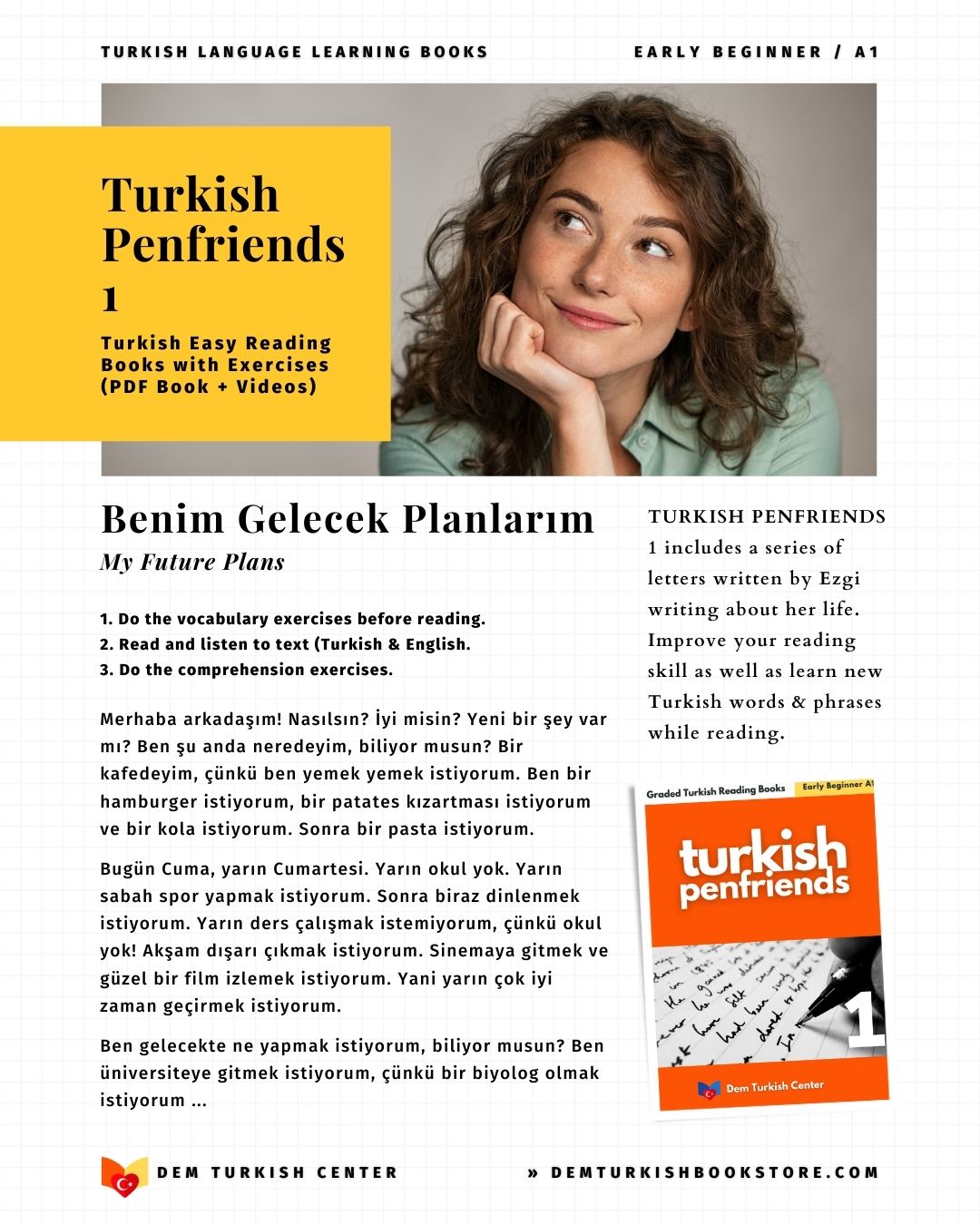
200 Turkish Verbs For Beginners (with examples)
Start your Turkish language learning adventure with our "List of 200 Turkish Verbs for Beginners."
This comprehensive guide is designed for Turkish language learners, presenting a handpicked selection of essential verbs, their English translations, and real-world sentence examples.
Whether you're expanding your Turkish vocabulary or improving your speaking abilities, this resource lays a solid groundwork in Turkish. Perfect for Turkish language learners of beginner level (A1 and A2), it’s the ultimate tool for effortlessly mastering Turkish verbs!
200 TURKISH VERBS FOR BEGINNERS
Learn Turkish faster with our list of 200 essential verbs for beginners! Includes English meanings to boost your vocabulary and fluency. Start now!
Action Verbs in Turkish
Action verbs in Turkish are words that express physical actions or movements performed by people, animals, or objects. These verbs depict what someone or something is actively doing.
Below is a list of action verbs that learners are likely to come across or use in their everyday activities.
- Koşmak = Run Köpekler çok hızlı koşuyor. The dogsare running very fast.
- Atlamak = Jump Çocuk duvardan atladı. The boy jumped off the wall.
- Yüzmek = Swim O havuzda yüzüyor. She is swimming in the pool.
- Atmak = Throw O topu uzağa atabilir. He can throw the ball far.
- Tırmanmak = ClimbBiz birlikte ağaca tırmanıyoruz. We are climbing the tree together.
- Dans etmek = DanceKızlar çok güzel dans ediyorlar. The girls are dancing very nicely.
- Şarkı söylemek = Sing O mutlu bir şarkı söylüyor. She is singing a happy song.
- Vurmak = Hit, Kick O topa vurdu. He kicked the ball.
- Yakalamak = Catch Ben topu yakalayabilirim. I can catch the ball.
- Yürümek = Walk Biz her gün okula yürüyoruz. We walk to school every day.
- Çizmek = Draw O hayvan resimleri izmeyi seviyor. She likes to draw pictures of animals.
- Boyamak = Paint Çocuklar hayvan resimlerini boyamak istiyorlar. The children want to paint animal pictures.
- Sürmek = Ride Ben parkın etrafında bisikletimi sürüyorum. I am riding my bike around the park.
- İnşa etmek = Build Onlar bir kule inşa ediyorlar. They are building a tower.
- Okumak = Read O yatmadan önce kitap okuyor. She reads a book before going to bed.
- Yazmak = Write O bir kitap yazmak istiyor. He wants to write a book.
- Yemek = Eat Biz saat 1'de öğle yemeği yiyoruz. We eat lunch at 1 o'clock.
- Oynamak = Play Çocuklar bahçede oyun oynuyorlar. The children are playing in the garden.
- Zıplamak = Jump Kurbağalar çok yükseğe zıplayabilir. Frogs can jump very high.
- İtmek = Push Ben açmak için kapıyı ittimg. I pushed the door to open.
Download Turkish language courses for self-study
Daily Routine Verbs in Turkish
Daily routine verbs in Turkish are words that describe the actions we perform as part of our everyday schedule. These verbs allow us to talk about activities we engage in from morning to night.
Below is a list of daily routine verbs that learners are likely to encounter or use in their daily lives.
- Uyanmak = Wake Ben her sabah erken uyanıyorum. I wake up early every morning.
- Fırçalamak = Brush O kahvaltıdan sonra dişlerini fırçalıyor. She brushes her teeth after breakfast.
- Yemek = Eat Biz her akşam birlikte akşam yemeği yiyoruz. We eat dinner together every evening.
- Giyinmek = Get dressed Küçük kardeşim her sabah kendi giyiniyor. My little brother gets dressed himself every morning.
- Yıkamak = Wash O yemekten önce ellerini yıkıyor. She washes her hands before eating.
- Taramak = Comb O duştan sonra saçını tarıyor. He combs his hair after a shower.
- Hazırlamak = Prepare, pack Ben okuldan önce çantamı hazırlıyorum. I pack my bag for school.
- Gitmek = Go Onlar okula otobüsle gidiyorlar. They go to school by bus.
- Okumak = Read O yatmadan önce bir kitap okuyor. He reads a book before going to bed.
- Çalışmak (ders çalışmak) = Study O okuldan sonra ders çalışıyor. She studies her lessons after school.
- Yazmak = Write O her gece günlük yazıyor. He writes in his journal every night.
- Oynamak = Play Biz okuldan sonra dışarıda oynuyoruz. We play outside after school.
- Uyumak = Sleep Ben gece yatağımda uyuyorum. I sleep in my bed at night.
- Pişirmek = Cook O çok güzel köfte pişiriyor. She cooks meatballas very well.
- İçmek = Drink O yatmadan önce bir birdak süt içiyor. He drinks a glass of milk before bed.
- Dinlemek = Listen Biz kahvaltı yaparken müzik dinliyoruz. We listen to music while we eat breakfast.
- Konuşmak = Talk Onlar futbol hakkında konuşuyorlar. They are talking about football.
- Temizlemek = Clean O her hafta sonu odasını temizliyor.
- Dinlenmek = Rest Ben okuldan sonra odamda dinleniyorum. I rest in my room after school.
Download Turkish language lessons for self-study
School-Related Verbs in Turkish
School-related verbs in Turkish are words that represent the actions and activities commonly associated with a school environment. These verbs enable us to describe what happens in the classroom and during learning sessions.
Below is a list of school-related verbs that learners are likely to use or encounter in their daily school routines.
- Okumak = Read Biz her gün sınıfta öyküler okuyoruz. We read stories in class every day.
- Yazmak = Write O bir kompozisyon yazıyor. She is writing an essay.
- Öğrenmek = Learn O okulda yeni şeyler öğreniyor. He is learning new things at school.
- Saymak = Count Ben birden ona kadar sayabilirim. I can count from one to ten.
- Çizmek = Draw Biz karikatür çizmeyi çok seviyoruz. We like to draw cartoons.
- Dinlemek = Listen Biz ders sırasında öğretmeni dinliyoruz. We listen to the teacher during lessons.
- Konuşmak = Speak Ben üç dil konuşabilirim. I can speak three languages.
- Cevap (Yanıt) vermek = Answer O soruya doğru cevap (yanıt) verdi. He answered the question correctly.
- Sormak = Ask Ben ona bir soru sordum. I asked him a question.
- Kesmek = Cut O makasla kağıdı kesiyor. She is cutting the paper with scissors.
- Silmek = Erase Ben yanlış yazdığım saman silgiyle siliyorum. I erase with my eraser when I write wrong.
- Paylaşmak = Share Biz kitaplarımızı arkadaşlarımı ile paylaşıyoruz. We share our books with our friends.
- Kaldırmak = Raise O bir soru sormak için elini kaldırdı. She raised her hand to ask a question.
- Öğretmek = Teach Öğretmen bize matematik öğretiyor. The teacher is teaching us Maths.
- Çözmek = Solve Biz tahtada matematik problemleri çözüyoruz. We are solving math problems on the board.
- Eşleştirmek = Match O kelimeler ile resimleri eşleştiriyor. She is matching the words with the pictures.
Download Turkish language worksheets for self-study
Household Verbs
Household chores verbs in Turkish are words that describe the tasks and activities involved in keeping our homes tidy and organized. These verbs are often associated with daily responsibilities at home.
Below is a list of household chores verbs that learners are likely to use or encounter while helping out around the house.
- Temizlemek = Clean Ben her hafta sonu odamız temizliyorum. I clean my room every weekend.
- Yıkamak = Wash O yemekten sonra bulaşıkları yıkıyor. She washes the dishes after dinner.
- Süpürmek = Sweep O bir süpürge ile yerleri süpürüyor. He is sweeping the floor with a broom.
- Toz almak = Dust O oturma odasında rafların tozunu alıyor. She is dusting the shelves in the living room.
- Paspaslamak = Mop O her akşam mutfağı paspaslıyor. He mops the kitchen floor every evening.
- Katlamak = Fold Ben çamaşırları katlıyorum. I am folding the laundry.
- Pişirmek = Cook Onlar mutfakta yemek pişiriyorlar. They are cooking in the kitchen.
- Kurmak = Set O akşam yemeğinden önce masayı kuruyor. She sets the table before dinner.
- Toplamak = Clear O yemekten sonra masayı topluyor. He clears the table after eating.
- Toplamak = Tidy Ben sabah odamı topluyorum. I tidy up my room in the morning.
- Sulamak = Water O bahçede çiçekleri suluyor. He is watering the plants in the garden.
- Çöp atmak = Take Out (the trash) Ben her akşam çöpü atıyorum. I take out the trash every evening.
- Silmek = Wipe O yemekten sonra masayı siliyor. He wipes the table after lunch.
- Ütülemek = Iron Biz giymeden önce giysileri ütülüyoruz. We iron our clothes before wearing them.
Take Turkish practice classes online
Transport and Travel Verbs
Transport and travel verbs in Turkish are words that describe actions associated with moving from one location to another, whether by vehicle, walking, or other methods of transportation. These verbs are helpful for discussing how we travel and explore various places.
Below is a list of transport and travel verbs that learners are likely to use or encounter in their daily lives.
- Sürmek = Drive Ben araba sürmeyi biliyorum. I know how to drive.
- Sürmek = Ride Ben parkta bisikletimi sürdüm. I rode my bike in the park.
- Uçmak, uçakla gitmek = Fly Biz Bodrum'a uçakla gittik. We flew to Bodrum (We went there by plane).
- Yürümek = Walk O her sabah okula yürüyor. She walks to school every morning.
- Koşmak = Run O otobüse yetişmek için koştu. He ren to catch the bus.
- Binmek = Board Biz istasyonda trene bindik. We board the train at the station.
- Yakalamak, Yetişmek = Catch O otobüse zamanında yetişti. She caught the bus on time.
- Park etmek = Park O arabayı eving önüne park ediyor. He parks the car in front of the house.
- Hazırlamak = Prepat, Pack ben yolculuk için bavullarımı hazırlıyorum. I am packing my suitcase for the trip.
- Keşfetmek = Explore Onlar yürüyerek şehri keşfettiler. They explored the city on foot.
- İnmek = Land Uçak güvenli bir şekilde havaalanına indi. The plane landed safely at the airport.
Cooking Verbs in Turkish
Cooking verbs are words that describe the actions we do when preparing and making food. These verbs are essential for talking about different steps in cooking, from simple tasks to more complex ones.
Here is a list of cooking verbs learners are likely to use or encounter in the kitchen.
- Karıştırmak = Mix Ben büyük bir kasede bütün malzemeleri karıştırıyorum. I mix all the ingredients in a big bowl.
- Karıştırmak = Stir O bir kaşıkla çorbayı karıştıyoru. She stirs the soup with a spoon.
- Fırında pişirmek = Bake Biz fırında kurabiye pişiriyoruz. We bake cookies in the oven.
- Doğramak = Chop O sebzeleri küçük küçük doğradı. He chopped the vegetables into small pieces.
- Soymak = Peel Ben patatesleri soyuyorum. I am peeling the potatoes.
- Kaynatmak = Boil O yemek yapmak için su kaynatıyor. She is boiling water to cook.
- Kızartmak = Fry O patates kızartıyor. He is frying potatoes.
- Dilimlemek = Slice O bir bıçakla ekmeği dilimliyor. She slices the bread with a knife.
- Sürmek = Spread O tostun üstüne tereyağı sürüyor. She spreads butter on the toast.
- Rendelemek = Grate O makarna için peynir rendeliyor. She grates the cheese for the pasta.
- Fırında pişirmek = Roast O tavuğu fırında pişiriyor. He roasts the chicken in the oven.
- Tatmak = Taste Ben yemeden önce çorbayı tattım. I tasted the soup before having.
Sports and Exercise Verbs
Sports and exercise verbs in Turkish are words that describe the actions we do when playing sports or staying active. These verbs help us talk about different movements and activities that keep us fit and healthy.
Here is a list of sports and exercise verbs learners are likely to use or encounter during physical activities.
- Koşmak = Run Ben yarış sırasında hızlı koştum. I ran fast during the race.
- Vurmak = Hit, Kick O topa vurdu ve gol oldu. He kicked the ball into the goal.
- Atmak = Throw Ben topu potaya attım. I threw the basketball into the hoop.
- Yakalamak = Catch O eldiveni ile topu yakaladı. She caught the ball with her glove.
- Pas vermek = Pass O takım arkadaşına pas verdi. He passed the ball to his teammate.
- Germek = Stretch Biz maçtan önce kaslarımızı geriyoruz. We stretch our muscles before the match.
- Kaldırmak = Lift O spor salonunda ağırlık kaldırıyor. He lifts the weights at the gym.
- Dalmak = Dive O havuza daldı. She diveed into the pool.
- Tırmanmak = Climb O spor salonunda kaya duvarına tırmanıyor. She climbs the rock wall at the gym.
Feelings and Emotion Verbs
Feelings and emotions verbs in Turkish are words that describe how we feel inside and express our emotions. These verbs help us talk about different emotional states and reactions.
Here is a list of feelings and emotions verbs learners are likely to use or encounter in their daily lives.
- Sevmek = Love Ben ailemi çok seviyorum. I love my family very much.
- Sevmek = Like O arkadaşları ile oynamayı çok seviyor.
- Nefret etmek = Hate O brokoli yemekten nefret ediyor. He hates eating broccoli.
- Korkmak = Fear O gece karanlıktan korkuyor. She fears the dark at night.
- Gülmek = Smile Ben mutlu olduğum zaman gülüyorum. I smile when I’m happy.
- Gülmek, Kahkaha atmak = Laugh O komik fıkralara kahkaha atıyor. She laughs at the funny joke.
- Ağlamak = Cry O üzgün olduğu zaman ağlıyor. He cries when he feels sad.
- Ummak = Hope Umarım yarın yağmur yağmaz. I hope it doesn’t rain tomorrow.
- Özlemek = Miss O eski arkadaşını çok özlüyor. He misses his old friend.
- Sürpriz yapmak = Surprise O bir doğum günü pastası ile bir sürpriz yaptı.
- Kıskanmak = Feel Jealous O onun arkadaşı yeni bir oyunca ladığı zaman onu kıskandı. She feels jealous when her friend gets a new toy.
Verbs For Manners and Social Interactions
Verbs for manners and social interactions in Turkish are words that describe actions related to polite behavior and how we communicate with others. These verbs help us talk about expressing respect, kindness, and effective communication.
Here is a list of verbs for manners and social interactions that learners are likely to use or encounter in their daily lives.
- Paylaşmak = Share Ben kitaplarımı arkadaşlarımla paylaşıyorum. I share my books with my friends.
- Selamlamak = Greet O komşularını selamlıyor. She greets her neighbors.
- Özür dilemek = Apologize Eğer yanlış bir şey yaptıysam, özür dilerim. I apologize if I did something wrong.
- Davet etmek = Invite Ben arkadaşlarımı doğum günü partime davet ettim. I invited my friends to my birthday party.
- Saygı göstermek = Respect O başkalarının düşüncelerine saygı gösteriyor. She respects others’ opinions.
- Dinlemek = Listen Biz dikkatle öğretmeni dinliyoruz. We are listening carefully to the teacher.
- Sarılmak = Hug Ben iyi geceler dedim ve anneme sarılıyorum. I say good night and hug my mother.
- Beklemek = Wait Ben onu görmeyi bekliyorum. I am expecting to see her.
Body Movement Verbs in Turkish
Turkish verbs of body movement are words that describe the different actions we can perform with our bodies, such as moving parts or changing positions. These verbs allow us to talk about how we move and engage with the world around us.
Below is a list of verbs of body movement that learners are likely to use or encounter in their daily activities.
- Zıplamak = Jump Ben rafa ulaşmak için yükseğe zıpladım. I jump up high to reach the shelf.
- Koşmak = Run O çok hızlı koşabilir. She can run very fast.
- Yürümek = Walk Biz parka gitmek ve orada yürümek istiyoruz. We want to go to the park and walk there.
- Dönmek = Turn O arkadaşını görmek için döndü. He turns around to see his friend.
- Alkışlamak = Clap Biz müzikle beraber alkışladık. We clap our hands to the music.
- Başını sallamak = Nod O evet demek için başını salladı. She nods her head to say yes.
- Kaldırmak = Lift Ben kutuyu kadırdım ve masanın üstüne koydum. I lift the box and put it onto the table.















